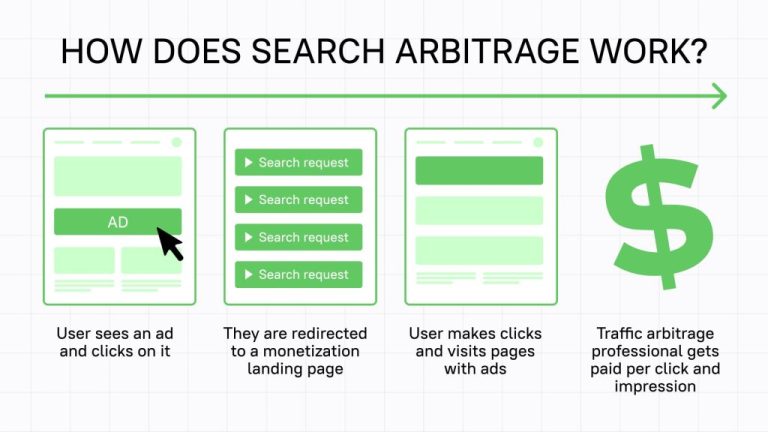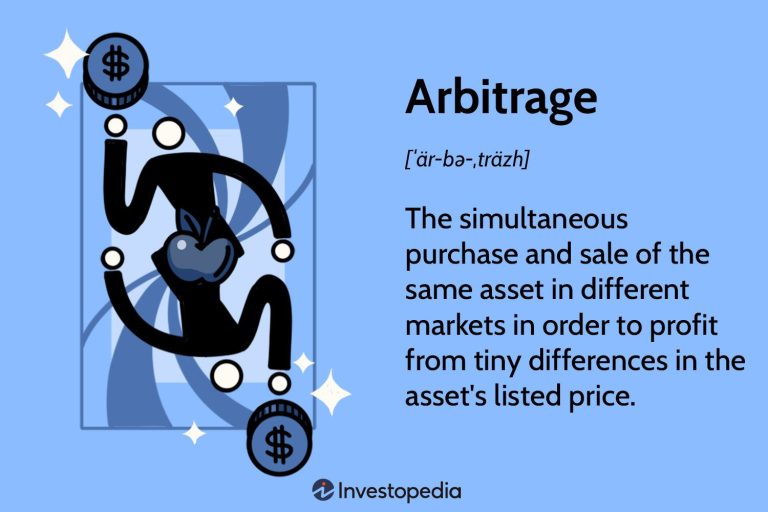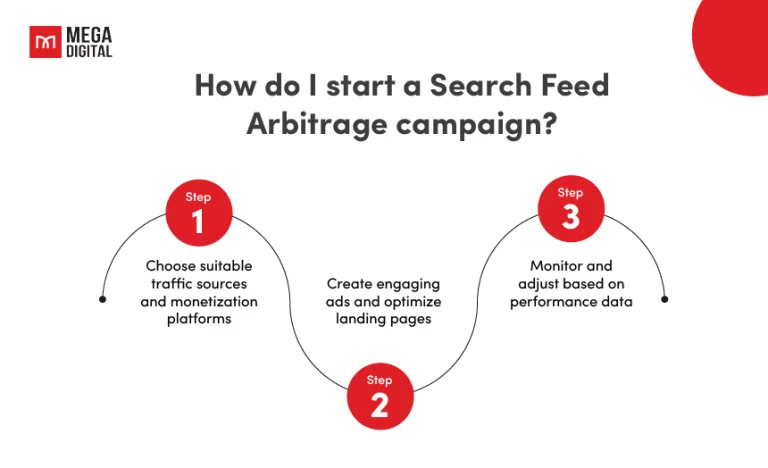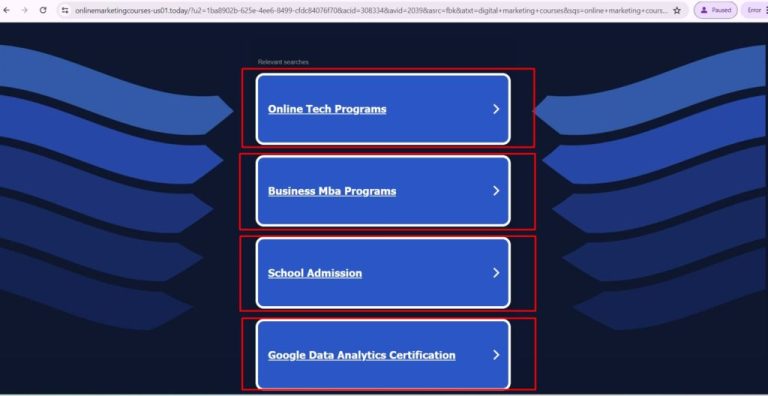Search Arbitrage Tracker
You’d think that the world of digital marketing holds no more secrets, yet search arbitrage is one of those undiscovered treasures still hidden beneath the surface. This approach capitalizes on the gap between the cost of ads and the revenue generated through clicks, capturing profits from swift transactions. Imagine tapping into a stream of low-cost, high-ROI opportunities that others might overlook.
Search Arbitrage Tracker tools have transformed how experts monitor these opportunities, optimizing them with precision. Historically, businesses relied heavily on manual tracking, which was not only labor-intensive but also prone to human error. With modern tech, you can now leverage automated systems to spot discrepancies and potential profit points efficiently. This evolution marks a significant leap, providing laser-focused insights into rapidly fluctuating market scenarios.
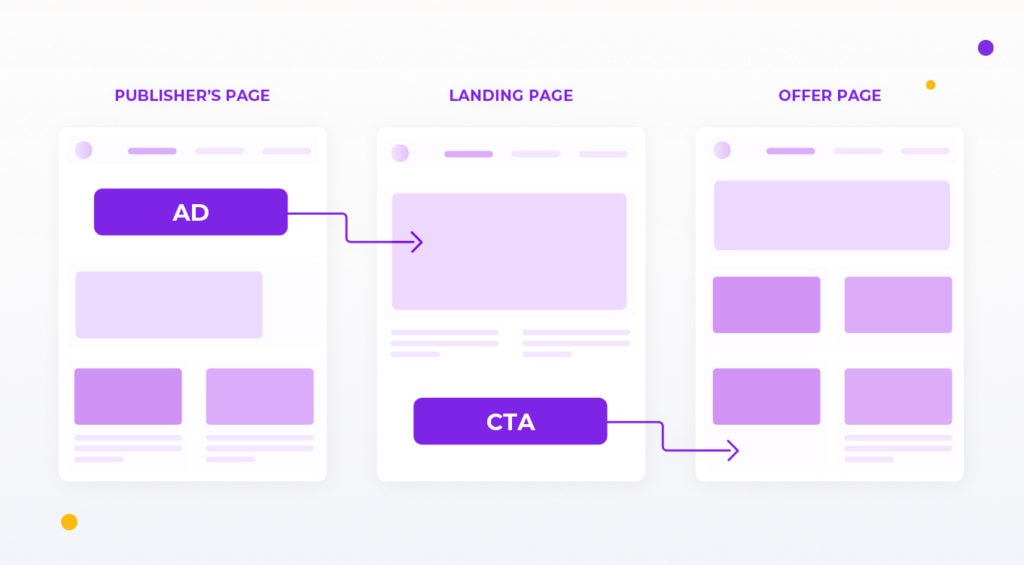
Concept and Basics of Search Arbitrage Tracker
Search arbitrage starts with finding differences in costs and profits. Imagine buying something cheap and selling it for a bit more. That’s the basic idea behind arbitrage, but applied to online ads. You use a search arbitrage tracker to spot these opportunities. It helps you find where you can profit by buying low-cost clicks.
These trackers are tools that monitor search engines. They check when and where ads can make more money than they cost. By observing this, you can adjust your strategies. You focus on keywords that are cheap yet profitable. This way, you gain a competitive advantage.
People use these systems for better decisions. The trackers gather a lot of data from different sources. But, they present it in an easy-to-understand way. Charts and graphs are common features. This helps you quickly see where your next move might be profitable.
- Monitor keyword costs
- Analyze competition
- Optimize ad placements
These actions enhance your market tactics. The information from a tracker guides your ad spending choices. So, using these tools smartly can lead to increased earnings.
Unearthing the Potential of Search Arbitrage Tracking
Imagine uncovering hidden profit pockets in the vast online advertising world. That’s what search arbitrage tracking does. It allows you to identify the price differences between what you pay for ads and what you earn from them. The magic lies in the data these trackers collect. They show you which keywords and ads are most effective and affordable.
Using this information, you can craft a strategy for higher earnings. For instance, focusing on low-cost keywords with high conversion rates becomes easier. You’ll also notice trends and patterns that can guide future decisions. It’s like having a map in a digital treasure hunt. The journey becomes more predictable.
Another cool aspect is the ability to test different strategies. With the data you get, you can try new approaches with confidence. Tools often include features like
- real-time updates
- performance comparison
- ROI calculators
. These help you refine your tactics continuously. Smart tweaks can lead to substantial gains over time.
Some people might worry about complex interfaces or data overload. However, modern trackers are designed to be user-friendly. They often use visuals like tables to simplify insights. Here’s a quick table showing potential earnings:
| Keyword | Cost per Click | Average Earnings |
|---|---|---|
| Keyword 1 | $0.50 | $1.50 |
| Keyword 2 | $0.30 | $1.20 |
This clarity allows you to make informed choices quickly.
Significance of Search Arbitrage Tracker in Digital Marketing
In the bustling world of digital marketing, staying ahead is crucial. A search arbitrage tracker helps marketers uncover hidden opportunities. By showing differences in ad costs and profits, it acts as a guide to making smarter business choices. These tools analyze trends, providing clear insights for decision-making. This makes it easier to find cost-effective strategies.
Marketers can use these insights to optimize their ad campaigns. For example, they may notice certain keywords deliver better results, allowing for adjustments. With such data, you can allocate budgets more efficiently. This optimizes returns and boosts overall campaign success. It’s about being smart with every advertising dollar.
Some trackers offer advanced features to enhance marketing efforts. Features might include:
- real-time performance tracking
- keyword analysis
- competitor benchmarking
. These functionalities provide a holistic view of the market landscape. Having all this data empowers marketers to react swiftly to changes. In turn, it leads to better results.
Understanding competition is another significant advantage. By using the tracker, you can see where competitors stand. This competitive intelligence lets you refine your strategies. Plus, tables and charts simplify complex data, making it accessible. Thus, search arbitrage trackers become an invaluable tool in the digital marketing toolbox.
Features and Functions of Search Arbitrage Trackers
Search arbitrage trackers are advanced tools packed with valuable features. A standout feature is the real-time data monitoring. This lets you see ad performance and price fluctuations instantly. Quick access to this information helps you make rapid adjustments to your campaigns. Ultimately, this agility boosts profitability.
You also get comprehensive keyword analysis, a vital part of any tracker. It identifies which keywords are priced lower but can yield high profits. Having such insights allows for better targeting and spending. Combined with cost analyses, it empowers you to choose impactful keywords for your campaign. So, your marketing budgets are used more wisely.
A comparative tool is often included, showing how you stack up against competitors. This competitive analysis provides a strategic advantage. You’ll pinpoint market gaps your rivals might overlook. With this knowledge, you can enter the market strategically. This makes you more adaptive to changes.
Many trackers offer customizable settings to match specific needs. Flexibility is crucial because each business may have different goals. Adapting the tool to suit those goals enhances its effectiveness. Elements like dashboards can be tailored for clarity and focus. The result is a tracker that works seamlessly with your strategy.
Most trackers use visual aids to present data clearly. Tables and charts simplify complex numbers and trends. For instance, a chart might illustrate earnings over time next to costs. This visual representation showcases which campaigns need attention. Consequently, decision-making becomes easier and faster.
Some trackers even provide alerts for significant market shifts. Alerts notify you of potential opportunities or risks on the horizon. This feature helps in maintaining agility in your campaign management. By staying aware of the latest changes, you remain proactive. The more proactive you are, the better your results will be.
Choosing the Right Search Arbitrage Tracker
Picking the best search arbitrage tracker can seem tricky, but it doesn’t have to be. You want a tool that fits your specific needs. Start by evaluating the features offered. Does it provide real-time tracking and keyword analysis? A feature-rich tracker usually offers the best performance.
Consider the user interface when making your decision. You’ll be using this tool regularly, so it should be easy to navigate. Look for trackers with customizable dashboards. This allows you to set up your workspace for efficient monitoring. A clean interface saves time and reduces errors.
Think about integration capabilities with other platforms you use. Does the tracker work well with your current marketing tools? Seamless integration can save you time and effort. It ensures that your campaigns run smoothly across various platforms. Compatible tools make monitoring much easier.
Price is always a factor in choosing the right tracker. While some tools might offer more features, they can also be more expensive. Balance the cost with the benefits it provides. Here’s a quick comparison table of features and prices of a few popular options:
| Tracker Name | Features | Monthly Price |
|---|---|---|
| Tracker A | Real-time data, keyword analysis | $50 |
| Tracker B | Competitor analysis, customizable dashboard | $70 |
This comparison can guide you to make a cost-effective choice that meets your needs.
Finally, check reviews and testimonials. They provide firsthand insights into the tool’s reliability and efficiency. Feedback from other users reveals real-world performance. Positive reviews often indicate a tool worth investing in. This will give you confidence in your selection.
Real-world Applications and Case Studies of Search Arbitrage Tracker
Search arbitrage trackers have made significant impacts in real-world scenarios. Companies use them to optimize digital marketing efforts. They provide insights that help businesses find cost-effective ad strategies. For example, one company found they could save thousands by targeting less competitive keywords. This simple shift led to a substantial increase in ROI.
Another case involved a small business that used search arbitrage to compete with larger rivals. By focusing on niche markets, they found cheaper advertising options. This strategy enabled them to reach new audiences without breaking the bank. Their sales doubled within months. Such stories highlight the power of informed tracking.
In e-commerce, these tools have become crucial for boosting sales. Some companies use them to monitor seasonal trends and adjust their marketing tactics accordingly. This proactive approach minimizes wasted ad spend. It’s about spending where and when it matters most. This transition leads to more effective campaigns.
One business in the tech industry leveraged a tracker to test different ad formats. They discovered that video ads performed better than static images. With this data, they shifted focus to video content, seeing a 40% increase in engagement. This case shows how experimentation can uncover profitable techniques.
Corporations aren’t the only ones benefiting. Non-profits have used these tools to raise awareness at lower costs. By identifying high-impact, low-cost keywords, they reached more people without exceeding budgets. This tactic allows non-profits to effectively use their limited resources. It demonstrates the versatility of search arbitrage trackers.
To give a clearer view of success rates, I’ve compiled some examples in a table:
| Business Type | Strategy Used | Outcome |
|---|---|---|
| Retail | Keyword optimization | 30% cost reduction |
| E-commerce | Peak time ad bidding | 20% increase in sales |
These applications show how diverse industries can benefit from using these trackers effectively.
Key Takeaways
- Search arbitrage trackers help you maximize marketing returns.
- They find low-cost, high-profit keywords for better ad strategies.
- Real-time data lets you adjust campaigns quickly and effectively.
- A smarter spend leads to more optimized advertising budgets.
- These tools provide a competitive advantage in the digital market.
Frequently Asked Questions
Explore the basics of search arbitrage and its influence in digital advertising here. These questions will provide insight into optimizing your marketing efforts efficiently.
1. How does search arbitrage benefit digital marketers?
Search arbitrage allows digital marketers to leverage price differences between ad costs and generated revenue. By identifying underpriced keywords and capitalizing on them, advertisers can achieve higher profit margins. This strategic approach helps maximize the return on investment in digital marketing campaigns.
Additionally, search arbitrage simplifies campaign management by offering real-time insights. Marketers can adjust their strategies quickly, ensuring that they spend budgets effectively on high-performing keywords. This tactic keeps their advertising competitive, adaptable, and profitable in a fast-changing digital landscape.
2. What features should you look for in a search arbitrage tracker?
Key features in a search arbitrage tracker include real-time data monitoring, keyword analysis, and competitor insights. These tools should also offer customizable dashboards and seamless integration with other marketing platforms. Such features help in making informed, strategic decisions quickly.
Moreover, user-friendly interfaces are crucial, allowing easy navigation and quick comprehension of data. This ensures that even those new to search arbitrage can use the tools effectively. Overall, the right features empower marketers to optimize their ads for better performance and returns.
3. Can small businesses benefit from using search arbitrage?
Absolutely, small businesses can greatly benefit from search arbitrage by targeting niche markets. With precise keyword targeting, they can reduce ad costs while maximizing visibility. This enables them to compete with larger firms without a hefty marketing budget.
By using data-driven insights, small businesses can focus on agile marketing strategies. This empowers them to react quickly to shifts in market trends. Such adaptability gives them an edge, enabling sustainable growth and increased profitability over time.
4. How do search arbitrage trackers help in decision making?
Search arbitrage trackers provide marketers with crucial data analytics that inform ad strategy decisions. They highlight patterns, trends, and performance metrics, allowing marketers to optimize and allocate budgets more efficiently. This data ensures marketing efforts are focused on high-impact areas.
Additionally, trackers can alert marketers to changes in the ad environment, which supports proactive decision-making. By staying ahead of market shifts, businesses maintain competitive advantages. This forward-looking approach fosters smarter, evidence-based decisions that enhance campaign success.
5. Why is real-time data important in search arbitrage tracking?
Real-time data is vital because it enables instant strategy adjustments based on current market conditions. This immediacy allows marketers to optimize campaigns quickly for the best results. Real-time insights keep marketing efforts aligned with current trends and profitability metrics.
Furthermore, the ability to act on live data minimizes wasted spend and ensures budgets are used effectively. Continuous data flow supports dynamic, responsive marketing strategies. This real-time adaptability is crucial for achieving consistent, high-performing digital marketing campaigns.
Final Thoughts
In the ever-evolving world of digital marketing, search arbitrage trackers stand as invaluable tools. They empower you to capitalize on cost disparities, ensuring your campaigns are both efficient and profitable. By leveraging real-time data, you can make informed decisions that adapt to market shifts seamlessly.
With the right features, these trackers simplify the complex world of online advertising. They provide a clearer path to optimize your strategies and budgets. As you continue to explore their potential, your marketing efforts become more focused and impactful. Utilizing them wisely puts you in a promising position for growth and success.



